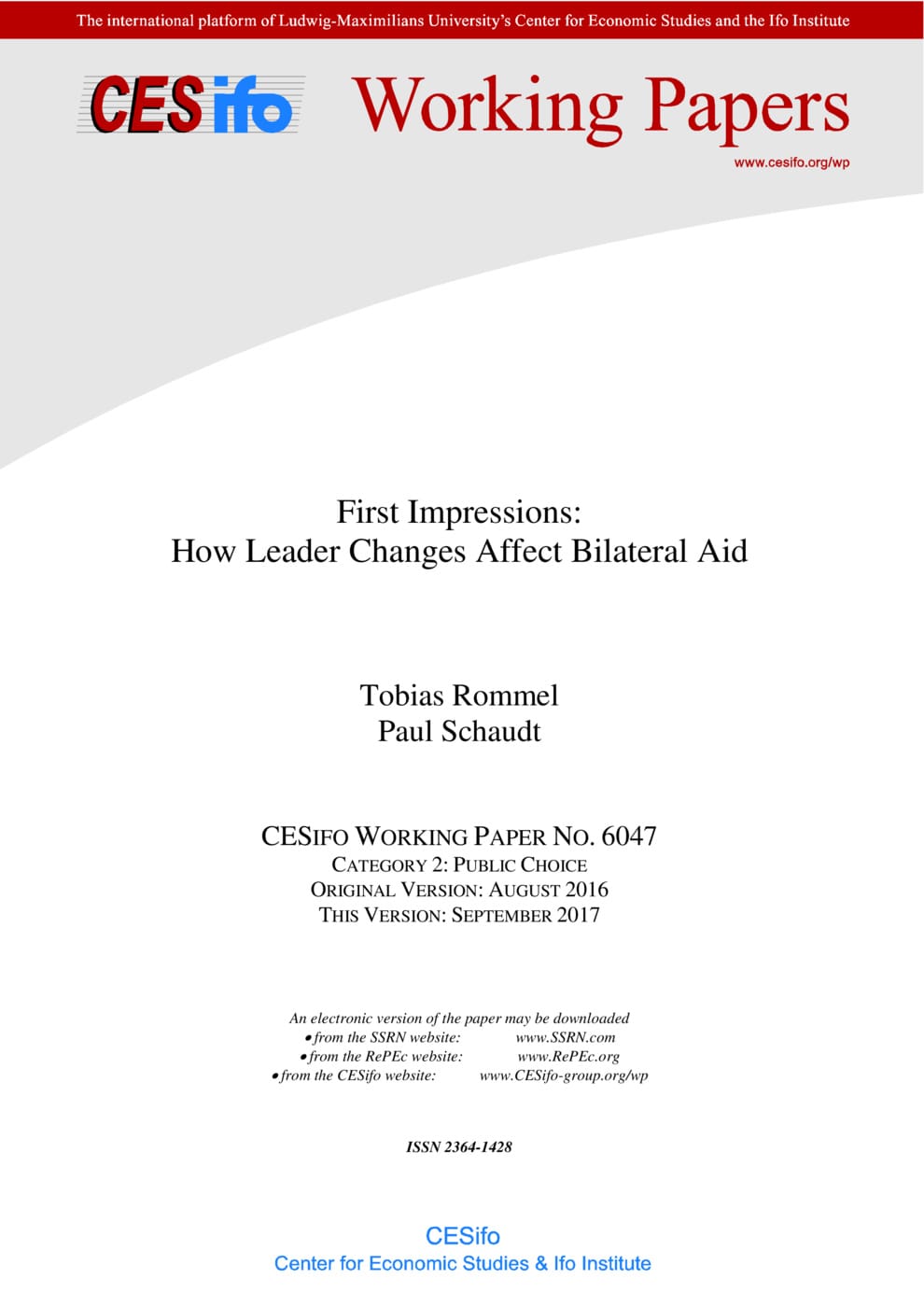First Impressions: How Leader Changes Affect Bilateral Aid
CESifo, Munich, 2016
CESifo Working Paper No. 6047

This paper investigates a new mechanism to explain politically induced changes in bilateral aid. We argue that shifts in the foreign policy alignment between a donor and a recipient country following leadership changes induce reallocation of aid. This is due to heightened uncertainty of recipients’ behavior in the international arena. Utilizing data from the G7 and 133 developing countries between 1975 and 2012 and employing gravity and control function models, we show that incoming leaders in recipient countries, which politically converge towards their donors, receive more aid commitments, compared to those that diverge. Additionally, accounting for donor leader change, we find that incumbent recipient leaders have an opportunity to get even more aid when political change in donor countries moves them closer to the donor’s foreign policy position. Thus, leadership turnover in recipient and donor countries makes otherwise inconsequential deviations in foreign policy alignment highly consequential for aid provision.
Public Choice
Monetary Policy and International Finance